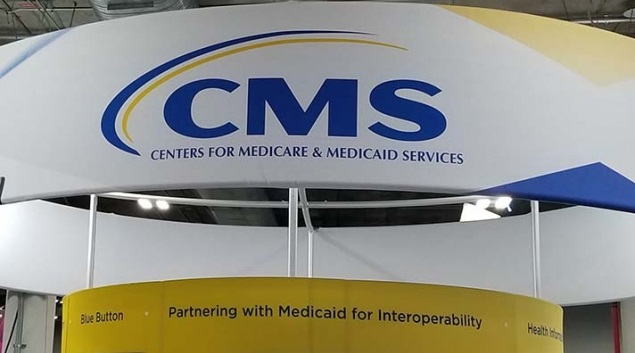The release on March 9 of the long-awaited interoperability final rules from the Office of the National Coordinator for Health IT and the Centers for Medicare and Medicaid Services happened to coincide with the acceleration of the coronavirus pandemic nationwide.
WHY IT MATTERS
Now, six week later, ONC and CMS, along with the HHS Office of Inspector General, say they’ve recognized the enormous priority shifts that have been required as hospitals and health systems battle the COVID-19 emergency, and are giving some leeway for certain compliance dates with the new rules.
The flexibility is not across the board, but only for some specific portions of the two sets of rules, although ONC and CMS say they’ll continue to “monitor the implementation landscape to determine if further action is needed.”
In the meantime, ONC says it will exercise enforcement discretion for “all new requirements under 45 CFR Part 170 that have compliance dates and time frames until three months after each initial compliance date or timeline identified in the ONC Cures Act Final Rule.” The list of ONC’s new enforcement discretion timeline updates can be found here.
The agency says it hopes new flexibility for development and implementation can help the U.S. healthcare system “focus on addressing the COVID-19 pandemic, while still maintaining a trajectory that will advance patients’ access to their health information, reduce the cost of care, and improve the quality of care.”
As for CMS, its interoperability and access rules affect not just payers, but hospitals – including psychiatric hospitals and critical access hospitals – on the COVID-19 front lines, it said.
As such, it is extending the implementation timeline for admission, discharge and transfer notification conditions of participation by an extra six months. (They’ll now be effective 12 months after the final rule is published in the Federal Register, rather than six as the rule was drafted.)
Moreover, CMS said it will extend for six months its enforcement of API provisions for the Patient Access API and Provider Directory API policies for Medicare Advantage, Medicaid and the Children’s Health Insurance Program: July 1, 2021, rather than January 1.
Similarly, qualified health plans on federally-facilitated exchanges will have until July rather than January, said CMS in its COVID-19 update. “Other policies contained in the final rule will be implemented and enforced on schedule.”
In a statement, AHIP expressed appreciation for the enforcement discretion to “allow hospitals and health insurance providers to remain focused on caring for patients through the COVID-19 crisis, but we expect that short period will need to be extended, given the magnitude and anticipated duration of the challenges. At the same time, our underlying concerns remain. We are seriously concerned that patient privacy will still be at risk when health care information is transferred outside the protections of federal patient privacy laws.”
THE LARGER TREND
Reaction to how the rules should be implemented, and on what timeline, since the start of the coronavirus crisis has been mixed.
In an April 2 letter to HHS Secretary Alex Azar, for instance, Pew Charitable Trusts urged the agency to stay the course.
“The COVID-19 pandemic gripping the nation underscores the importance of these regulations in enabling greater data exchange and providing patients with their information,” said Ben Moscovitch, Pew’s project director for health information technology.
He pointed to challenges (and potential risks) for patients visiting providers to get copies of their health records and the benefits of automated EHR extraction for direct public health reporting as just two examples where the rules could do some good in a crisis such as this one.
“We urge you to implement these rules without additional delay,” said Moscovitch.
But other organizations have urged HHS to relax what some say is an aggressive timeline, given the significant challenges of recent months. One of them was the Premier healthcare alliance, which represents some 4,000 hospitals and health systems, hundreds of thousands of clinicians and other providers.
In a letter this past week to HHS, Premier asked for delays in implementation timelines for many new rules, including those pertaining to providers from both CMS’s interoperability and patient access regs and ONC’s 21st Century Cures Act rules.
Reacting to Tuesday’s new announcement, Blair Childs, senior vice president for public affairs at Premier, said the group was thankful for delays for the “onerous requirement that providers send ADT notifications.”
However, Premier was “disappointed that HHS has not extended its discretion authority to give providers more time to comply with the information blocking requirements,” he said.
“The COVID-19 pandemic has required an unprecedented response from healthcare providers that has left them with limited time or resources to implement new policies,” said Childs. “We hope HHS will consider taking additional action in the near future to ensure healthcare providers can focus on critical patient care needs during this public health emergency.”
ON THE RECORD
“ONC remains committed to ensuring that patients and providers can access electronic health information, when and where it matters most,” said National Coordinator for Health IT Dr. Don Rucker. “During this critical time, we understand that resources need to be focused on fighting the COVID-19 pandemic.
“To support that important work and the information sharing efforts we are already seeing, ONC intends to exercise enforcement discretion for three months at the end of certain ONC Health IT Certification Program compliance dates associated with the ONC Cures Act Final Rule to provide flexibility while ensuring the goals of the rule remain on track.”
“Now more than ever, patients need secure access to their healthcare data,” said CMS Administrator Seema Verma. “Hospitals should be doing everything in their power to ensure that patients get appropriate follow-up care. Nevertheless, in a pandemic of this magnitude, flexibility is paramount for a healthcare system under siege by COVID-19. Our action today will provide hospitals an additional 6 months to implement the new requirements.”






























